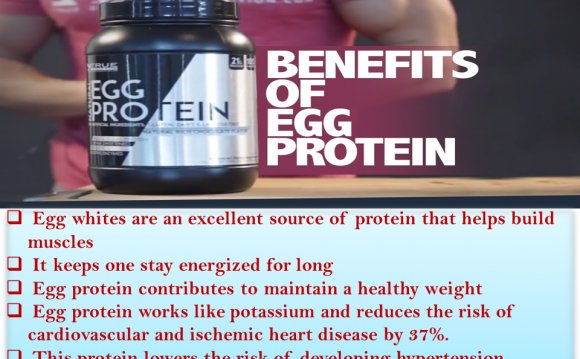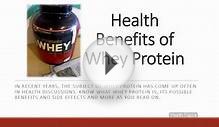
This supplement has been used in connection with the following health conditions:
| Used for | Why |
|---|---|
|
2 Stars Athletic Performance Refer to label instructions |
Casein protein is more slowly digested than other animal proteins, resulting in a slower, prolonged rise in blood levels of amino acids, so some speculate that it may better support protein synthesis by the body compared with proteins like whey protein that are more rapidly digested. Casein protein is more slowly digested than other animal proteins, resulting in a slower yet more prolonged rise in blood levels of amino acids.3 This has led to speculation that casein may support protein synthesis by the body for a longer period of time compared with proteins, such as whey protein, that are more rapidly digested. However, in two double blind trials, measurements of muscle protein synthesis after leg exercises were similar whether casein or whey protein (either 20 grams or 0.3 grams per 2.2 lbs body weight taken one hour after exercise) was consumed. Other double blind studies have shown that adding protein supplements to a weight-training program improves gains in muscle mass and strength, but only one trial has compared using casein alone to other proteins for improving body composition and muscle strength. In this controlled trial, overweight men were given a low-calorie diet along with a weight training exercise plan for three months. Men who followed this plan and also took 1.5 grams per day of predigested casein protein per 2.2 lbs body weight gained more strength and lean body mass, and lost more body fat than did men using a similar amount of whey protein along with the same diet and exercise plan. |
|
Obesity |
Casein protein in milk may aid weight loss due to its effect on appetite, calorie burning, and body composition. Casein, the main protein in milk, may aid weight loss due to its effect on appetite, calorie burning, and body composition.4, 5 In a controlled trial, overweight women dieted for four months using a low-calorie diet that included three daily shakes made from either casein or soy protein.6 Both groups lost similar amounts of weight, with similar improvements in body composition, suggesting there was no difference in the weight-loss benefits of soy or casein protein. In another controlled trial, overweight men were given a low-calorie diet along with a weight training exercise plan for three months. Men who followed this plan and also took 1.5 grams per day of predigested casein protein per 2.2 lbs body weight lost a similar amount of weight as did men using a similar amount of whey protein along with the same diet and exercise plan. However, the men using casein protein gained more lean body mass and lost more body fat than the men using whey protein.7 |
How to Use It
Some benefits of casein protein have been demonstrated with as little as 20 grams per day. For improving body composition with weight training, 1.5 grams of casein protein per 2.2 pounds body weight per day has been effective.
Where to Find It
Milk protein is 70 to 80% casein, so milk, yogurt, cheese and other dairy products are high in casein. Nondairy foods sometimes contain added casein as a whitening or thickening agent. Casein is also used in some protein supplements.
Possible Deficiencies
People who do not include dairy foods in their diets do not consume casein. However, the amino acids in casein protein are available from other sources, and a deficiency of these amino acids is unlikely in a typical Western diet.
Interactions with Supplements, Foods, & Other Compounds
At the time of writing, there were no well-known supplement or food interactions with this supplement.
Interactions with Medicines
As of the last update, we found no reported interactions between this supplement and medicines. It is possible that unknown interactions exist. If you take medication, always discuss the potential risks and benefits of adding a new supplement with your doctor or pharmacist.
The Drug-Nutrient Interactions table may not include every possible interaction. Taking medicines with meals, on an empty stomach, or with alcohol may influence their effects. For details, refer to the manufacturers’ package information as these are not covered in this table. If you take medications, always discuss the potential risks and benefits of adding a supplement with your doctor or pharmacist.
References
1. Deutz NE, Bruins MJ, Soeters PB. Infusion of soy and casein protein meals affects interorgan amino acid metabolism and urea kinetics differently in pigs. J Nutr 1998;128:2435-45.
2. Boirie Y, Dangin M, Gachon P, et al. Slow and fast dietary proteins differently modulate postprandial protein accretion. Proc Natl Acad Sci 190-35.
3. Boirie Y, Dangin M, Gachon P, et al. Slow and fast dietary proteins differently modulate postprandial protein accretion. Proc Natl Acad Sci 190-35.
4. Hochstenbach-Waelen A, Veldhorst MA, Nieuwenhuizen AG, at al. Comparison of 2 diets with either 25% or 10% of energy as casein on energy expenditure, substrate balance, and appetite profile. Am J Clin Nutr 2009;89:831-8.
5. Veldhorst MA, Nieuwenhuizen AG, Hochstenbach-Waelen A, at al. Comparison of the effects of a high- and normal-casein breakfast on satiety, 'satiety' hormones, plasma amino acids and subsequent energy intake. Br J Nutr 2009;101:295-303.
6. Anderson JW, Fuller J, Patterson K, et al. Soy compared with casein meal replacement shakes with energy-restricted diets for obese women: randomized controlled trial. Metabolism 2007;56:280-8.
7. Demling RH, DeSanti L. Effect of a hypocaloric diet, increased protein intake and resistance training on lean mass gains and fat mass loss in overweight police officers. Ann Nutr Metab 2000;44:21-9.
8. Wal JM. Cow's milk proteins/allergens. Ann Allergy Asthma Immunol 2002;89(6 Suppl 1):3-10.
9. Truswell AS. The A2 milk case: a critical review. Eur J Clin Nutr 2005;59:623-31 [review].
10. German JB, Gibson RA, Krauss RM, et al. A reappraisal of the impact of dairy foods and milk fat on cardiovascular disease risk. Eur J Nutr 2009;48:191-203 [review].
11. Elliott RB, Harris DP, Hill JP, et al. Type I (insulin-dependent) diabetes mellitus and cow milk: casein variant consumption. Diabetologia 1999;42:292-6.
12. McLachlan CNS: b-casein A1, ischaemic heart disease mortality, and other illnesses. Med Hypotheses 2001;56;262-72 [review].
13. Martin JM, Trink B, Daneman D, et al. Milk proteins in the etiology of insulin-dependent diabetes mellitus (IDDM). Ann Med 1991;23:447-52 [review].
14. Tholstrup T. Dairy products and cardiovascular disease. Curr Opin Lipidol 2006;17:1-10.
15. Sun Z, Cade JR. A peptide found in schizophrenia and autism causes behavior changes in rats. Autism 1999:3;85-95.
YOU MIGHT ALSO LIKE












